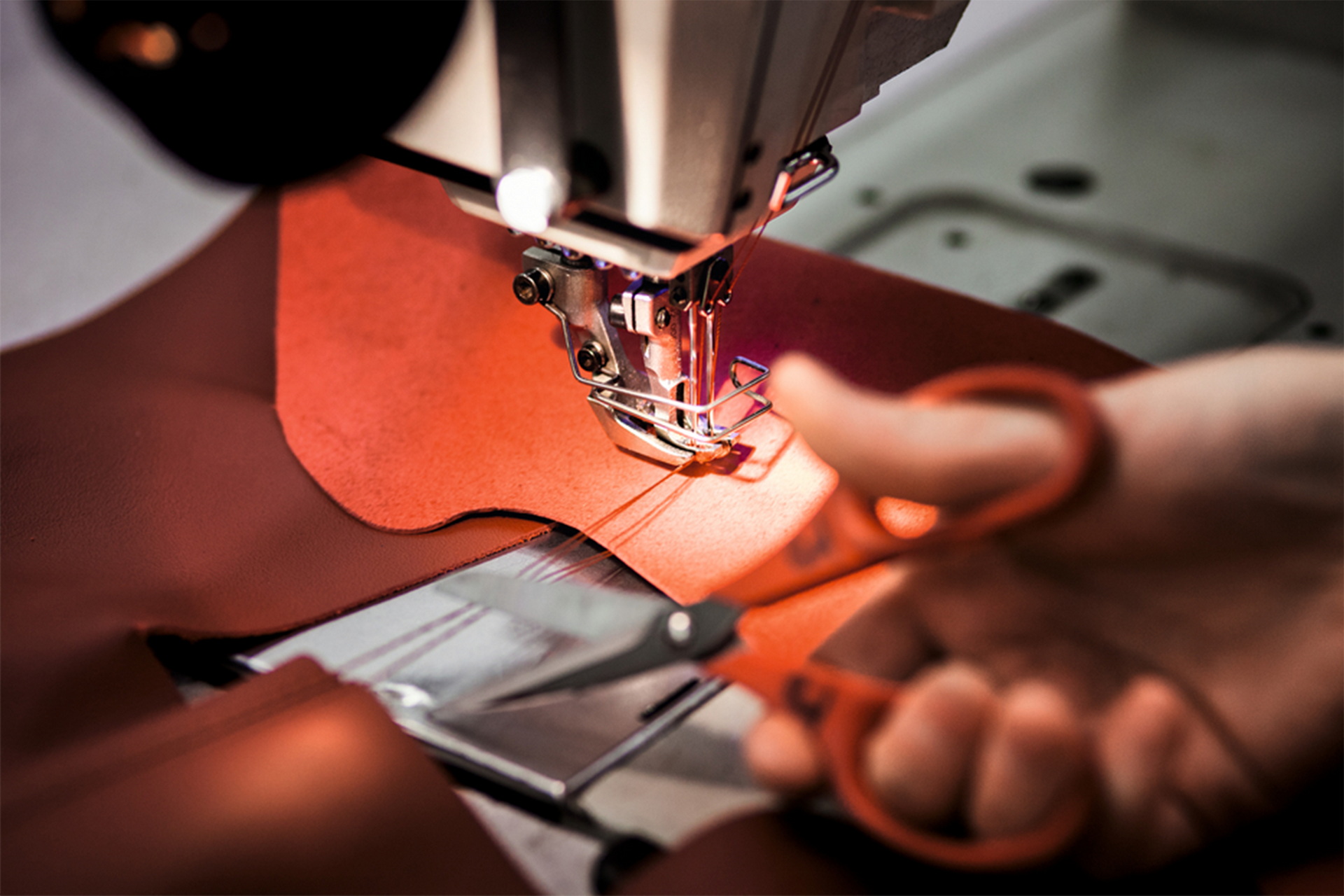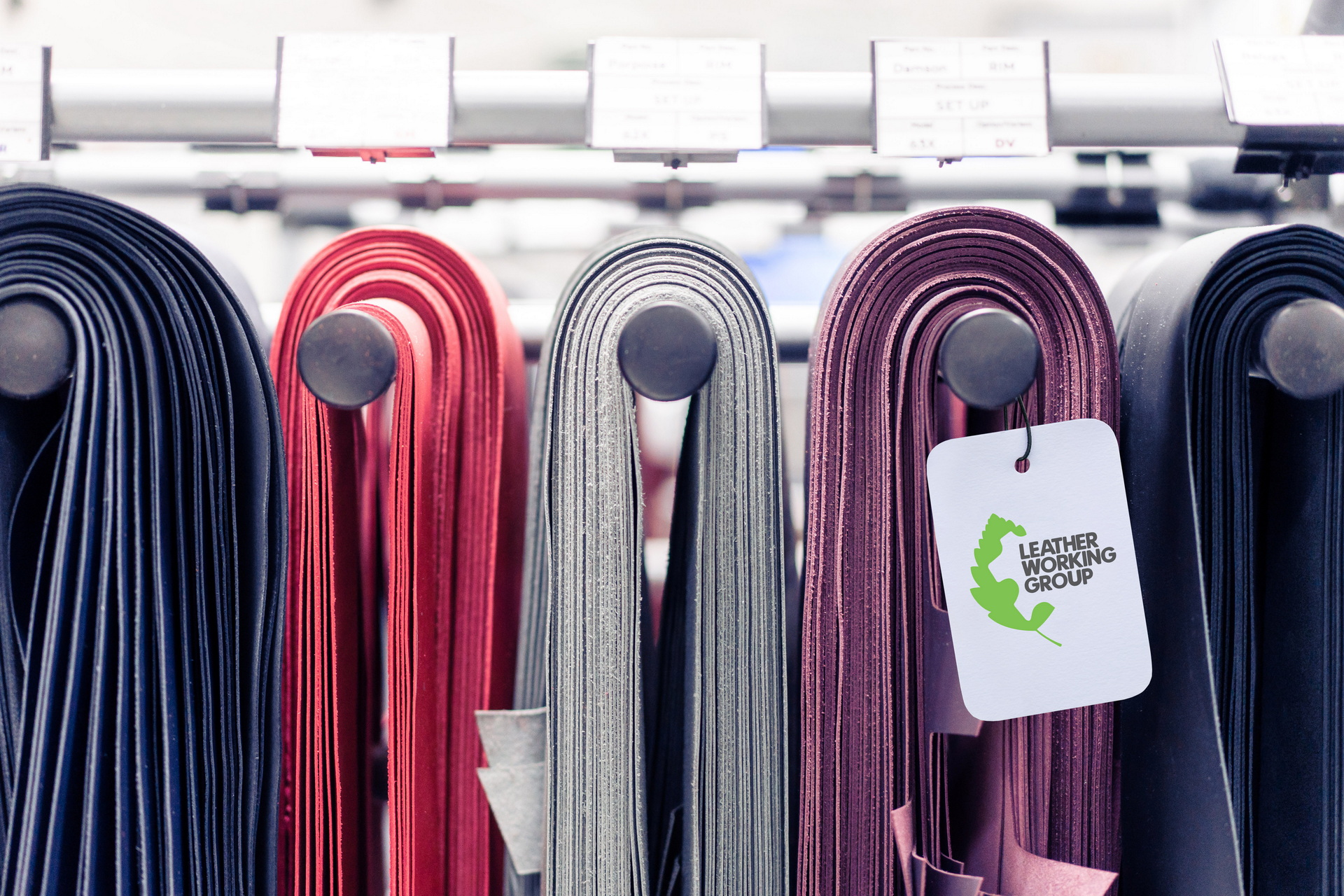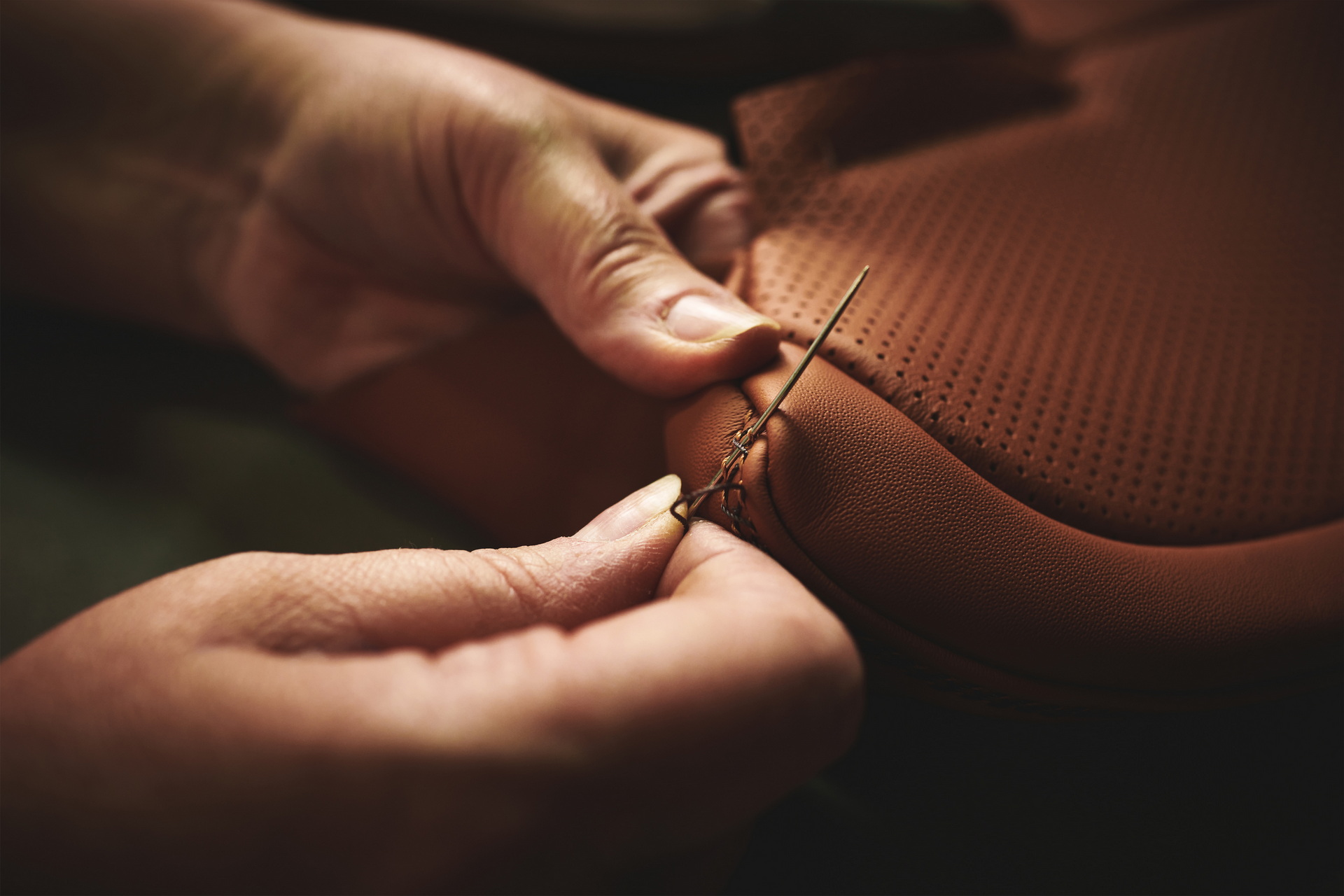Bentley is the first automaker to join the Leather Working Group, an industry group that audits leather manufacturers against best practices and stringent manufacturing standards. The group aims to make the leather industry more environmentally sustainable.
By the start of 2022, Bentley aims to only buy leather from suppliers and tanneries that adhere to the Leather Working Group’s audit process. It hopes to achieve the working group’s gold standard award.
“The use of leather and coachbuilding are hallmarks of our hundred-year-old history,” says Mark Cooke, Bentley‘s head of production purchasing. “Our cutters and trimmers are experts in their fields and the fact that so many of our heritage models still exist with their original interiors, demonstrates the longevity of leather as a core material to us and its inherent sustainability over time.” He added that “as the first automotive member of the Leather Working Group, we look forward to working with our fellow members to actively shape the future of […] leather in the automotive sector.”
Read Also: Design Director Says That A Bentley With A Vegan Interior Is Coming
Bentley points out that 80 percent of its vehicles are still on the road, a testament, it says, to the longevity of its cars and its leather. More than 75 percent of the 200,000 cars Bentley has ever made left the factory after 2003, though.
Bentley already sources its leather from Europe, only ever purchasing hides that are an existing byproduct of the food industry. While that’s better than getting hides from animals that won’t be eaten, livestock accounts for 14.5 percent of human-originating greenhouse gases each year, per the U.N., so to say that leather is sustainable could be misleading. That may indicate why other manufacturers are looking to vegan leather and recycled materials.












